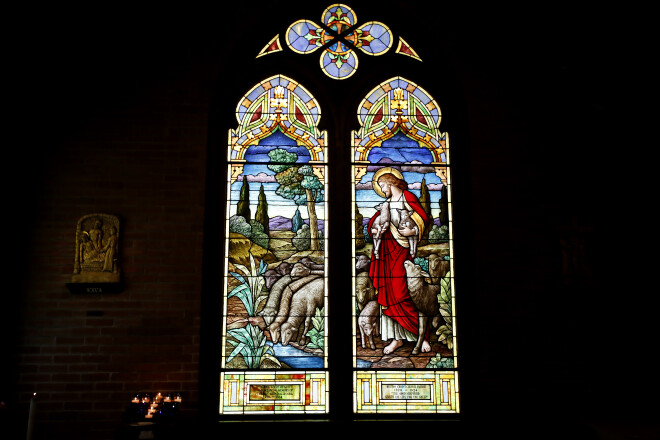A Final Window Cleaning

In the symbolic house of faith we are imagining, the windows through which the light enters are the Scriptures (though most of what we have to say about the New Testament will be conveyed in the coming sections). However, in order for us to see clearly, we need to remove a possible misunderstanding. Is this kind of focus on the Bible fundamentalism? What about the claims of science? Of historical criticism? What about sitting on the ‘stool’ whose legs also include reason and tradition? Shouldn’t we leave Biblicism to the Baptists?
The main point to make is that we believe that the Bible conveys God’s Word, and that it does so through what it actually says. We should not suppose there is some truth behind the words, or to be reconstructed from the words, which is His Word. In that case, something else other than the Scripture would have the final word. Believing this about Scripture distinguishes Christianity understood as the inheritance from the apostles. As a result, those other ‘sources,’ reason or tradition or perhaps experience, are those things by which we endeavor to hear and understand the Scriptures. What has been believed before and passed on to us must be honored in our endeavor to hear aright. And historical criticism is simply learning about the culture and language of the time of writing so that we can hear better. Finally, all of the above does not mean that the writing could not have a history of editing and passing on: The Holy Spirit can just as well work through these.
We come to know things in different ways, according to their areas of life. We must in theology struggle to bring what we know about biology with what the Scripture says about the origin and purpose of the world and human from God. We need to recognize that a passage like Genesis 1-2 is not of a genre or type like that of a biology text book. Scientific theories are offered and sometimes change, but they are important as they describe the real world that is God’s. So does Genesis 1-2, but in the genre of origin story, and with the question of the source and purpose of all things in mind. For these reasons a dialogue between ways of knowing is an important part of theology, but does not contradict the central claim of our faith that in the words of the Bible are found the Word of God, and that these books together measure whether any other kind of claim is from God or not.
Read Can the Bible be Authoritative? by author, N.T. Wright and discuss.



